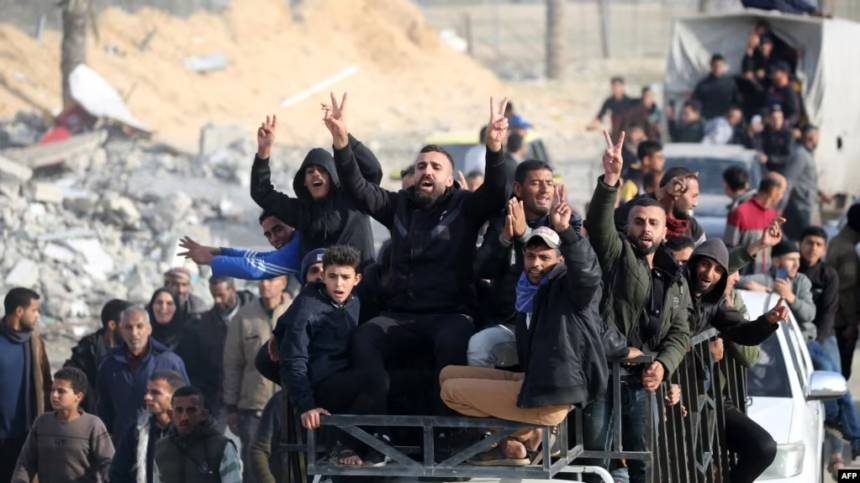A ceasefire between Israel and Hamas has officially come into effect on Sunday, following a series of tense delays. The ceasefire marks a significant step in the ongoing conflict, which has devastated the Gaza Strip and the broader region for over 15 months.
The delay in implementing the ceasefire was due to Hamas failing to release the names of three female hostages, which was a pre-condition for the ceasefire’s start. Israel had previously stated that it would continue its military operations until the names were delivered. Hamas later explained that “technical difficulties” had hindered the timely release of the names, and reaffirmed its commitment to the ceasefire.
Despite the delays, Israel confirmed that it had targeted several Hamas positions in Gaza before the ceasefire took hold. The Ministry of Health in Gaza reported at least eight casualties in Israeli strikes on January 19.
The ceasefire agreement is part of a broader negotiation that includes the release of nearly 100 hostages, who were taken during Hamas’ October 7, 2023, attacks in Israel. The hostages’ release is expected to be a pivotal step in halting the 15-month war and addressing the humanitarian crisis in Gaza.
Celebrations broke out across the Palestinian enclave, with many Palestinians returning to their homes. However, the fragile nature of the ceasefire was made evident by the delays in its implementation, and questions remain about the sustainability of the truce and the release of further hostages.
The initial phase of the ceasefire, set to last 42 days, is focused on the release of 33 hostages held in Gaza, alongside hundreds of Palestinian prisoners held in Israeli jails. The agreement also includes provisions for the return of displaced Palestinians and increased humanitarian aid to Gaza.
This ceasefire follows an earlier, brief pause in hostilities in 2024, which resulted in the release of some hostages. Negotiations for the second phase, expected to be more complex, will begin in two weeks. Uncertainty surrounds whether the ceasefire will hold and how the situation will unfold once the 42-day phase concludes.
The war in Gaza has caused significant destruction, with over 46,000 Palestinians reported dead and more than 90% of Gaza’s 2.3 million residents displaced. The UN has highlighted the extensive damage to healthcare, infrastructure, and vital services in the region, signaling that reconstruction







